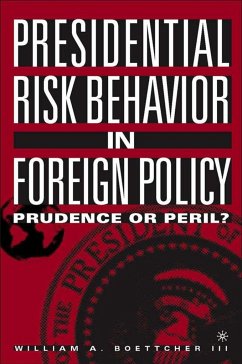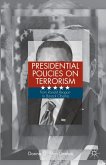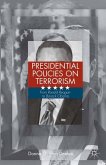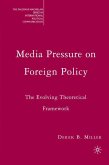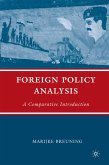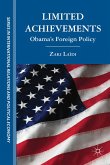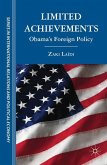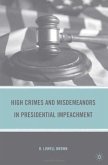Bringing together research on the situational determinants of risk propensity and on individual personality predispositions, Boettcher draws on findings from political science, psychology, economics, business, and sociology to develop a Risk Explanation Framework (REF) to study the 'person in the situation'. Using structured, focused comparison, he examines six foreign policy cases from the Truman and Eisenhower administrations to explore how aspirations, fears, time pressures, and other factors influence risk taking. This is thus an important contribution to the study of international relations, foreign policy decision making, prospect theory and risk behavior, personality theory, and information processing.
"This important and insightful book makes a substantial contribution to the foreign policy analysis literature. The author introduces an innovative synthesized model of risk behavior, that draws on a cross- disciplinary knowledge base. The conceptual arguments are supported by a set of in-depth case studies of presidential decisions by Presidents Truman and Kennedy that shed new light on the causes underlying the decisions. Both students of decision-making and policymakers should pay close attention to Professor's Boettcher carefully crafted arguments and their policy implications." - Yaacov Vertzberger, The Hebrew University
"Prudence or Peril is an insightful and sophisticated analysis of an important dimension of United States foreign policy during the cold war: the willingness of presidents to risk entrapment in the periphery and possibly even escalation to major war to contain Communist expansion and to preserve U.S. credibility. William Boettcher's risk explanation framework (REF) advances our understanding of foreign policy decision-making by incorporating three psychological theories of risk behavior -prospect theory, personality predispositions, and uncertainty/information accuracy-into a single deductive framework. Boettcher's analysis offers new insights into the decisions of Presidents Harry S. Truman and John F. Kennedy during pivotal cold war crises over Iran, Greece, Korea, Laos, Vietnam, and Congo."
- Jeffrey W. Taliaferro, Tufts University
"Prudence or Peril constitutes the very best research integrating cognitive decision making and foreign policy. Boettcher's analysis is carefully crafted theoretically, and empirically compelling. With a clear and compelling argument, Boettcher develops a framework increasing our understanding of how foreign policy executives make decisions involving risk. As one of the few books integrating research on personality with contemporary findings from cognitive psychology into a coherent argument about foreign policy, it is on the cutting edge of research into foreign policy decision making." - Jeffrey Berejikian, University of Georgia
"Prudence or Peril is an insightful and sophisticated analysis of an important dimension of United States foreign policy during the cold war: the willingness of presidents to risk entrapment in the periphery and possibly even escalation to major war to contain Communist expansion and to preserve U.S. credibility. William Boettcher's risk explanation framework (REF) advances our understanding of foreign policy decision-making by incorporating three psychological theories of risk behavior -prospect theory, personality predispositions, and uncertainty/information accuracy-into a single deductive framework. Boettcher's analysis offers new insights into the decisions of Presidents Harry S. Truman and John F. Kennedy during pivotal cold war crises over Iran, Greece, Korea, Laos, Vietnam, and Congo."
- Jeffrey W. Taliaferro, Tufts University
"Prudence or Peril constitutes the very best research integrating cognitive decision making and foreign policy. Boettcher's analysis is carefully crafted theoretically, and empirically compelling. With a clear and compelling argument, Boettcher develops a framework increasing our understanding of how foreign policy executives make decisions involving risk. As one of the few books integrating research on personality with contemporary findings from cognitive psychology into a coherent argument about foreign policy, it is on the cutting edge of research into foreign policy decision making." - Jeffrey Berejikian, University of Georgia

